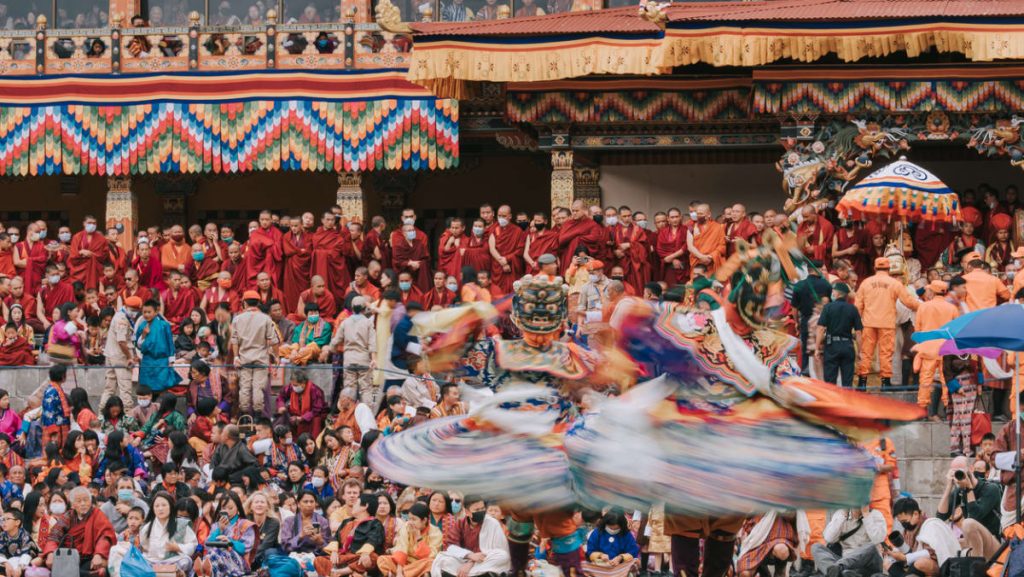Bhutan, a country known for its unique culture and untouched natural beauty, has seen a decline in tourism in recent years. Despite recording almost 100,000 visitors in 2020, a significant drop from its peak of 350,000 in 2019, the country’s Prime Minister, Mr Tobgay, believes that the idea that it is hard to visit Bhutan has hampered its tourism industry. Many potential tourists are deterred by the misconception that Bhutan is difficult to access and expensive to visit, leading them to exclude it from their travel plans. However, Mr Tobgay argues that this “myth” has its benefits, as those who do make the journey to Bhutan are often rewarded with a unique and satisfying experience that they would not find elsewhere.
According to Mr Tobgay, the myth surrounding the difficulty of visiting Bhutan has actually contributed to the country’s appeal by creating a sense of exclusivity and intrigue among potential tourists. While some may be put off by the perceived challenges of traveling to Bhutan, others are drawn to the idea of exploring a destination that is shrouded in mystery and surrounded by pristine natural beauty. The prime minister believes that once visitors arrive in Bhutan and immerse themselves in the local culture, interact with the friendly locals, and experience the breathtaking landscapes, they are filled with a sense of satisfaction and wonder that is hard to replicate elsewhere.
Despite the decline in tourist numbers, Mr Tobgay remains optimistic about the future of Bhutan’s tourism industry and the country’s ability to attract visitors from around the world. He acknowledges that the COVID-19 pandemic has undoubtedly had a significant impact on tourism globally, but he believes that Bhutan’s unique selling points, such as its emphasis on sustainable tourism, cultural preservation, and environmental conservation, will continue to appeal to conscientious travelers seeking meaningful and enriching experiences. By striking a balance between promoting tourism and preserving its cultural heritage, Bhutan hopes to maintain its status as a premier destination for travelers seeking a truly authentic and transformative experience.
In order to promote sustainable tourism and protect its cultural heritage, Bhutan has implemented a policy of “high-value, low-impact” tourism that focuses on attracting visitors who are willing to pay a premium for a unique and enriching travel experience. By limiting the number of tourists allowed to enter the country, charging a daily fee, and emphasizing the importance of responsible travel practices, Bhutan aims to ensure that tourism contributes positively to the economy while minimizing the negative impact on the environment and local communities. This approach has been successful in preserving Bhutan’s cultural traditions and natural landscapes while generating revenue that supports the country’s development goals and social welfare programs.
As Bhutan strives to strike a delicate balance between promoting tourism and preserving its cultural heritage, the country faces a number of challenges and opportunities in the years ahead. The COVID-19 pandemic has underscored the fragility of the global tourism industry and the need for destinations to adapt to changing circumstances and evolving trends. By leveraging its unique selling points, such as its emphasis on sustainability, cultural authenticity, and environmental stewardship, Bhutan is well-positioned to attract discerning travelers who are seeking meaningful and transformative experiences. As the country seeks to rebuild its tourism industry in a post-pandemic world, it will be essential to strike a balance between promoting tourism growth and ensuring the long-term sustainability of its cultural and natural assets. By embracing innovation, collaboration, and responsible tourism practices, Bhutan can continue to thrive as a premier destination for travelers seeking a truly authentic and immersive experience.















